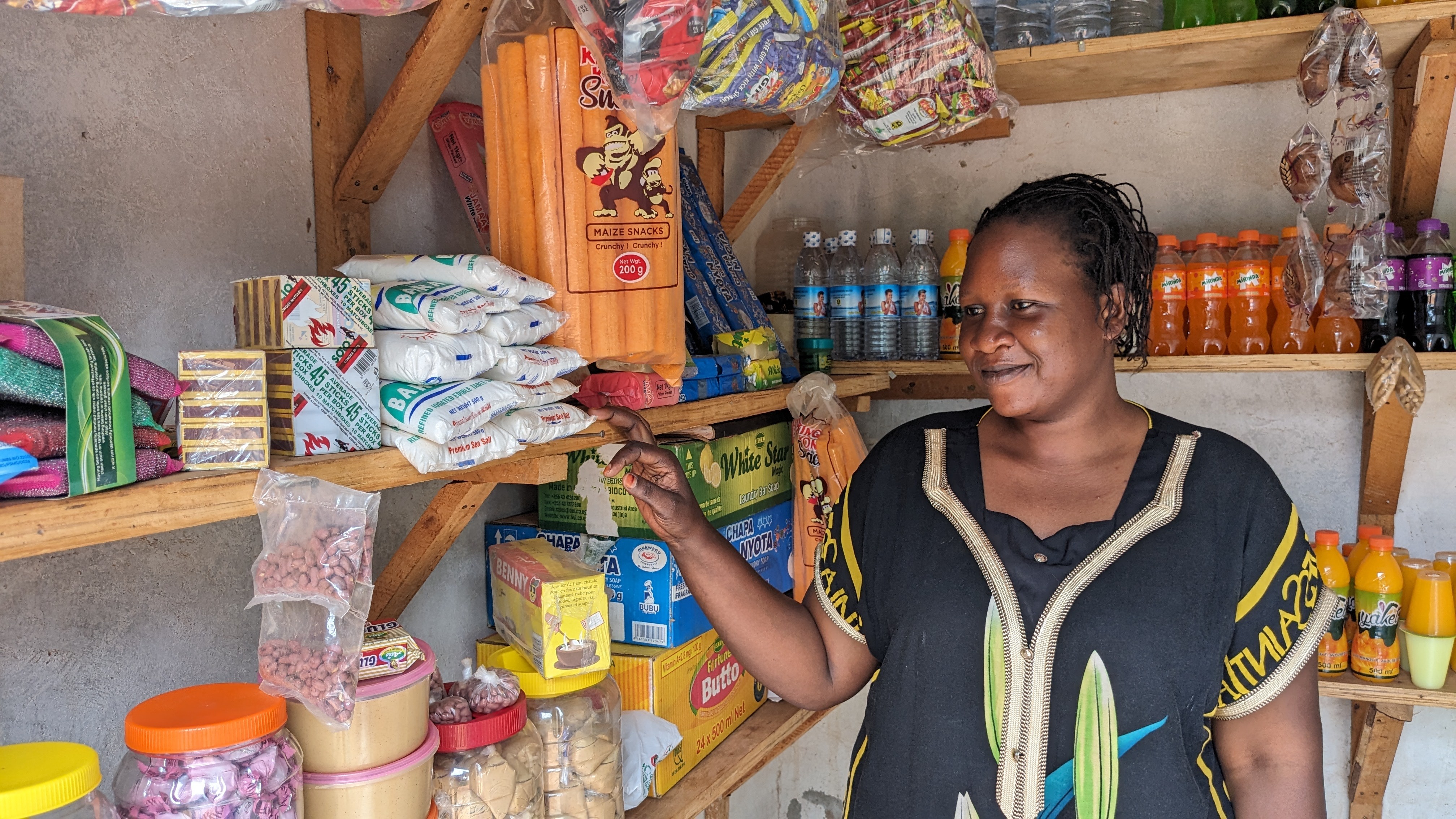We’re starting a new series, “Cash in the News,” where we will summarize the week’s news on GiveDirectly, cash transfers, and related topics like Effective Altruism and basic income. We will include a list of selected articles and posts, along with a brief, relevant excerpt from the post itself. Stay tuned for the latest and keep up to date on the world of cash transfer news. To receive this blog post as an email, send us a note with the subject “Newsletter” to info@givedirectly.org.
This week Gavin Walsh, GiveDirectly’s Director of Finance and Information Systems, explains the thinking behind GiveDirectly’s investments, while noting that “every day a donation sits in our bank account rather than in the hands of our recipients the world is effectively losing the difference between the rate of return our recipients would receive, or about 30%, and the rate our investments are paying us.” Elsewhere, across the globe, cash transfers took the spotlight this week, as food assistance in Zimbabwe, as reconstruction aid in Nepal, and as a basic income in New Zealand.
FROM OUR BLOG
1. Why and how we invest
GiveDirectly blog, Gavin Walsh, March 22, 2016
We have a strong incentive and desire to transfer the majority of the funds we receive to our recipients as quickly as possible. GiveDirectly is a service – donors use GiveDirectly to transfer funds to the extreme poor – and our donors expect that service to be efficient and timely.
2. GiveDirectly featured in Google San Francisco’s Giving Week 2015
GiveDirectly blog, March 17, 2016
From November 30th to December 4th 2015, Google San Francisco hosted their annual Giving Week, highlighting one organization each day and encouraging employees to donate to their favorite organizations. GiveDirectly was chosen as one of very few charities featured during that week.
GIVEDIRECTLY IN THE NEWS AND BLOGS
3. Government Disbursements
Novatti Blog, Mark Presser, March 18, 2016
In the NGO sector, we are increasingly seeing a trend toward cash transfers as the preferred method of giving, with organisations such as GiveDirectly, who utilise direct transfers, receiving generous donations from Facebook founders and other high profile philanthropists. A study released at the end of 2013 confirmed the positive short-term impact GiveDirectly has had on communities in Kenya through no-strings-attached cash payments that were delivered on the M-PESA mobile money platform.
4. The Wounded Warrior Project Scandal Should Encourage More Philanthropy
TIME, (Huffington Post Blog, The Life You Can Save Blog), Gleb Tsipursky, March 15, 2016
Recently, a social movement called Effective Altruism has been pushing the nonprofit sector to become more transparent and accountable. Several Effective Altruist organizations, including The Life You Can Save and GiveWell, provide information to donors about the impact of various charities addressing global poverty. Some of the top picks of these charity evaluators include the Against Malaria Foundation, which protects families in the developing world against deadly malaria-carrying mosquitoes, and GiveDirectly, which transfers money directly to some of the poorest people in the world. Another organization, Animal Charity Evaluators, gives recommendations on the most effective charities to prevent animal suffering.
CASH TRANSFERS
5. Zimbabwe: WFP Boosts Food and Cash Assistance As El Nino’s Grip On Zimbabwe Tightens
All Africa, UNWFP, March 16, 2016
WFP’s seasonal relief, designed to help vulnerable people through the difficult pre-harvest months, usually runs from October to March. This year – for the first time ever – the programme will continue running throughout the year and into next year. The unprecedented decision is in response to last month’s announcement by the Zimbabwe Vulnerability Assessment Committee (ZimVAC) that 2.8 million people – more than a quarter of the rural population – do not have enough to eat and have little or no guaranteed access to food. WFP is this month providing food and cash-based assistance to some 730,000 vulnerable people. Operations are being scaled up to reach an estimated 2.2 million people in the early months of next year, with the Government and development partners assisting the rest.
6. Nepal opens channels for reconstruction cash 11 months after quake
Yahoo News, AFP, March 13, 2016
Nepal authorities opened banking channels Sunday to start distributing reconstruction cash to earthquake victims, almost 11 months after the tremor killed nearly 9,000 people and destroyed more than half a million homes. Tens of thousands are still living in tents and the government has been strongly criticised for delays in disbursing aid despite donor pledges of billions in assistance.
7. Responding to Diverse Needs: Multipurpose Cash Grants
CaLP (with UNHCR, Oxfam, Save the Children, IRC) video
The growing use of cash transfers across a wide range of sectors provides opportunities for a paradigm shift to a more dignified, holistic approach to humanitarian assistance. Learn how UNHCR, in coordination with partners such as Oxfam, Save the Children, and the IRC, are using multipurpose cash grants to meet diverse needs and support local capacity and choice.
EFFECTIVE ALTRUISM
8. Charity giving: Are you ruled by your head or heart?(archive link, May 2023)
BBC, Derek Matravers, March 2016
In 2014 people in the UK donated around £10.6bn to charity – that’s roughly equivalent to £165 per person. For many of us, when it comes to making decisions about charitable giving, it’s the heart that drives the hand into the pocket. It can be very hard to resist the emotional punch of an expertly crafted advertisement or TV appeal. But is that really the best way to decide where our money goes?
BASIC INCOME
9. Labour considers ‘universal basic income’ policy
Otago Daily Times, NZME, March 21, 2016
All adult New Zealanders could be given a Government handout of at least $200 a week under a new policy being considered by the Labour Party. The co-leader of a global network promoting a “universal basic income”, British professor Guy Standing, will be a keynote speaker at a Labour conference on “the future of work” in Auckland this week.
10. A libertarian case for a guaranteed minimum income
CBC Radio, The 180 with Jim Brown, March 20, 2016
With all its supporters, you may think basic income is an idea from the political left. However, a guaranteed basic income has support from some you might consider rather right-wing, libertarians. Matt Zwolinski is a self-described libertarian, Associate Professor of Philosophy at the University of San Diego, and founder of the website Bleeding Heart Libertarians: Free Markets and Social Justice.

